In today's society, fostering an inclusive environment is more crucial than ever, and that's where our anti-discrimination policy comes into play. This initiative aims to create a safe space for everyone, regardless of their background, promoting equality and respect throughout our community. By addressing discrimination head-on, we can ensure that all voices are heard and valued, empowering individuals to thrive. Join us as we delve deeper into how you can support this vital cause and make a differenceâread more to find out how!

Clear Statement of Purpose
The anti-discrimination policy serves as a fundamental framework for ensuring equality and justice within organizations, such as non-governmental organizations (NGOs) dedicated to social change. This policy outlines a commitment to eradicate biases based on race, gender, religion, sexual orientation, and disability within operational practices and community interactions. The policy aims to create an inclusive environment that respects and values diverse backgrounds, promoting a culture of acceptance and understanding. It aligns with international human rights standards, including the Universal Declaration of Human Rights, and adheres to legal frameworks established by local government laws. Effective implementation requires regular training and continuous evaluation, reinforcing the organization's mission to empower marginalized groups and foster equitable access to resources and opportunities.
Legal Compliance and References
Non-governmental organizations (NGOs) play a critical role in advocating for anti-discrimination policies, such as those aimed at protecting marginalized groups within the community. Legal compliance with national and international regulations, including the Universal Declaration of Human Rights (UDHR) established in December 1948, remains essential for NGOs to uphold their mission. Anti-discrimination legislation, such as the Civil Rights Act of 1964 in the United States or the Equality Act 2010 in the United Kingdom, provides a solid foundation for policies targeting discrimination based on race, gender, sexual orientation, and disability. Reference frameworks, such as the Convention on the Elimination of All Forms of Discrimination Against Women (CEDAW), contribute to best practices within organizational structure, ensuring that NGOs not only support the legal aspects of anti-discrimination but also foster an inclusive culture that reflects these values.
Strategies for Implementation
Developing and implementing an effective anti-discrimination policy within a non-governmental organization (NGO) involves several strategic actions aimed at fostering an inclusive environment. Training sessions for staff (scheduled quarterly) should be organized to educate members on the principles of equality and diversity (referring to practices that promote fairness regardless of race, gender, or sexual orientation). Establishing a clear reporting mechanism for discrimination incidents is vital, including anonymous submission options to encourage transparency. Regular assessments (bi-annually) to evaluate the policy's impact on workplace culture will ensure continuous improvement. Collaborating with advocacy groups in the local community (like the Human Rights Campaign) can enhance policy effectiveness through shared resources and expertise. Promoting awareness campaigns (monthly newsletters) within the organization will further reinforce commitment to anti-discrimination values, encouraging open dialogues and community support.
Monitoring and Evaluation Framework
The Monitoring and Evaluation Framework for an NGO's Anti-Discrimination Policy establishes a systematic approach to assess the effectiveness of strategies aimed at promoting inclusion and equity among marginalized groups. This framework includes quantitative indicators, such as the percentage decrease in reported discrimination incidents (targeting a reduction of at least 30% over three years) and qualitative assessments through surveys measuring community perceptions of inclusiveness in local settings such as schools and workplaces. Data collection will occur bi-annually, with stakeholder feedback sessions planned at community centers across multiple regions. Furthermore, the framework will integrate a comprehensive reporting mechanism to track progress related to specific initiatives, like awareness campaigns and training programs, that focus on raising awareness about human rights violations. Results will contribute to refining strategies and ensuring alignment with international human rights standards outlined by organizations such as the United Nations.
Commitment to Diversity and Inclusion
The Commitment to Diversity and Inclusion within non-governmental organizations (NGOs) emphasizes the importance of recognizing and valuing diverse backgrounds, perspectives, and experiences. This policy aims to foster an inclusive environment where all individuals, regardless of race, gender, sexual orientation, or disability, feel respected and empowered. By promoting equitable access to opportunities and resources, organizations can enhance their effectiveness in addressing social issues and driving positive change. Key initiatives may include training programs focused on cultural competency, recruitment strategies aimed at increasing diversity among staff, and community engagement activities that seek to amplify underrepresented voices. Successful implementation requires ongoing evaluation and a willingness to adapt practices based on feedback and evolving societal norms.
Letter Template For Ngo Anti-Discrimination Policy Support Samples
Letter template of NGO support for inclusive anti-discrimination policies
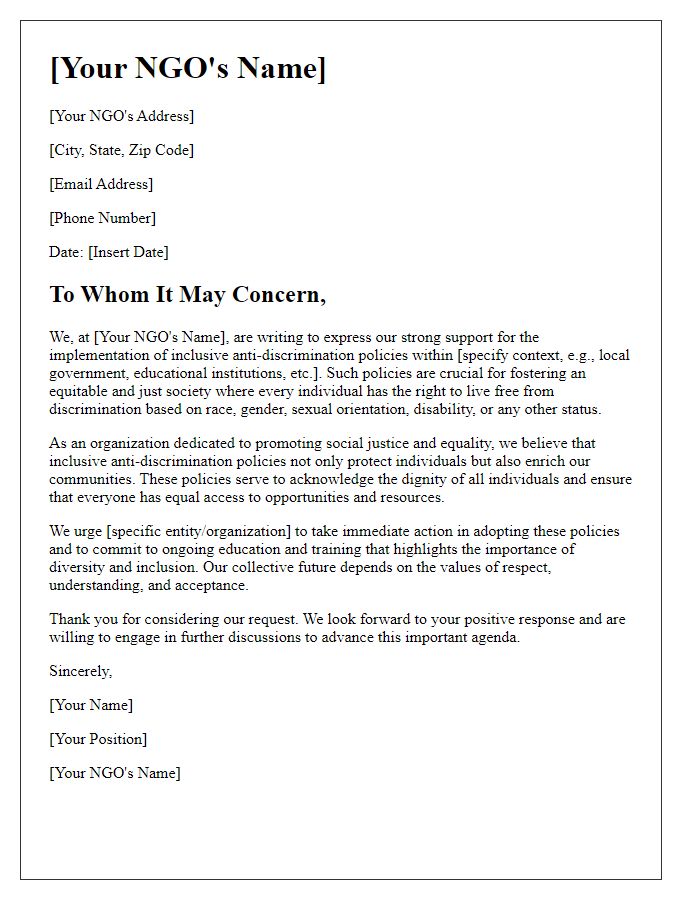

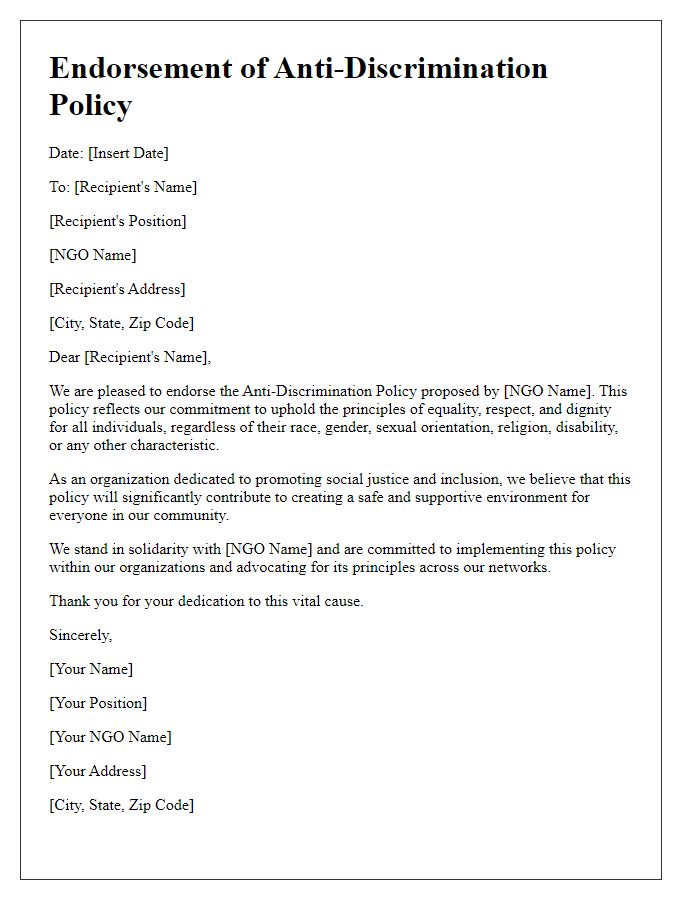
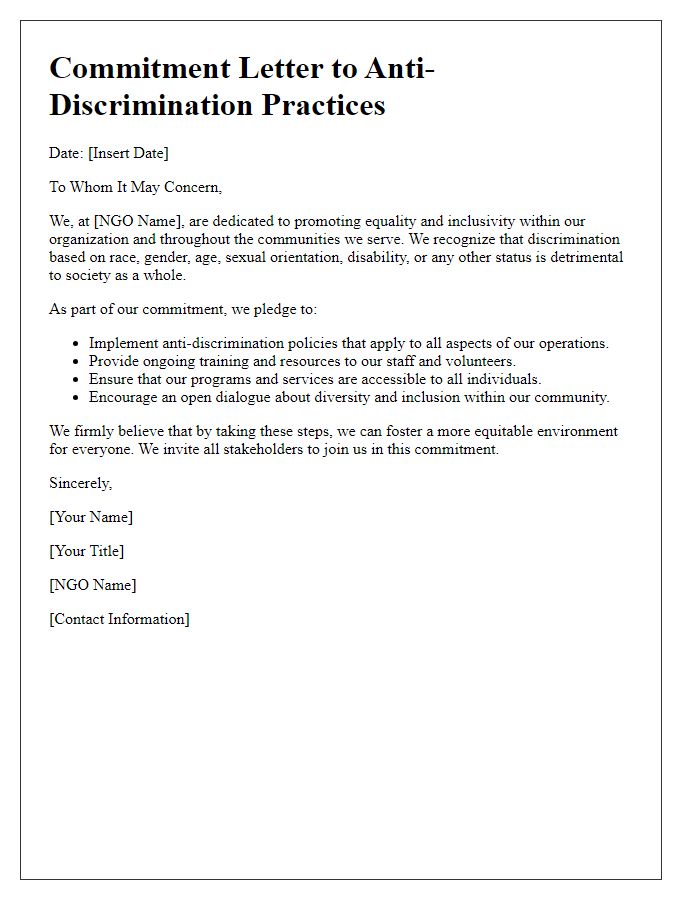
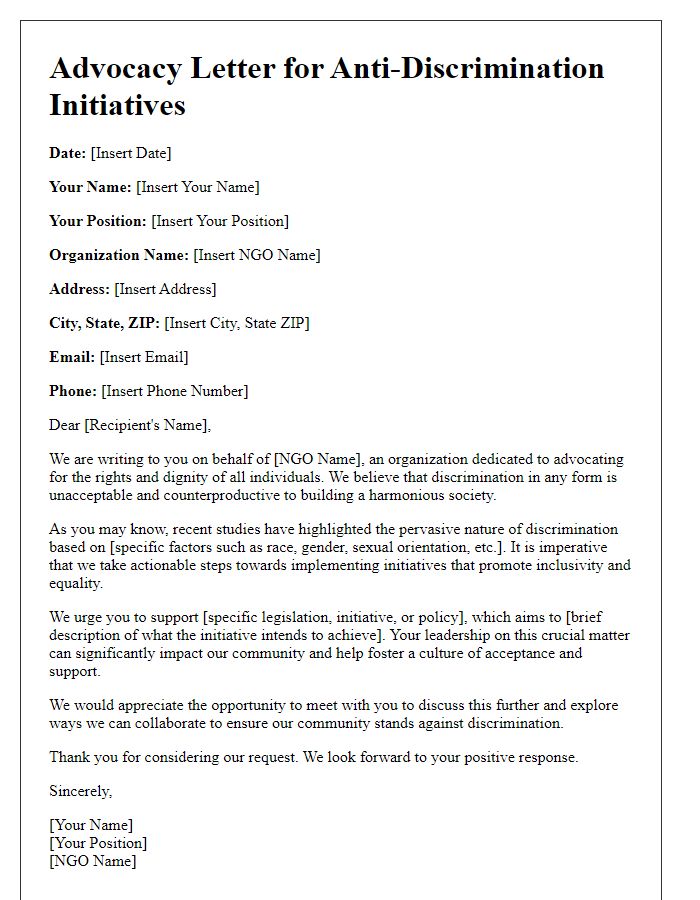
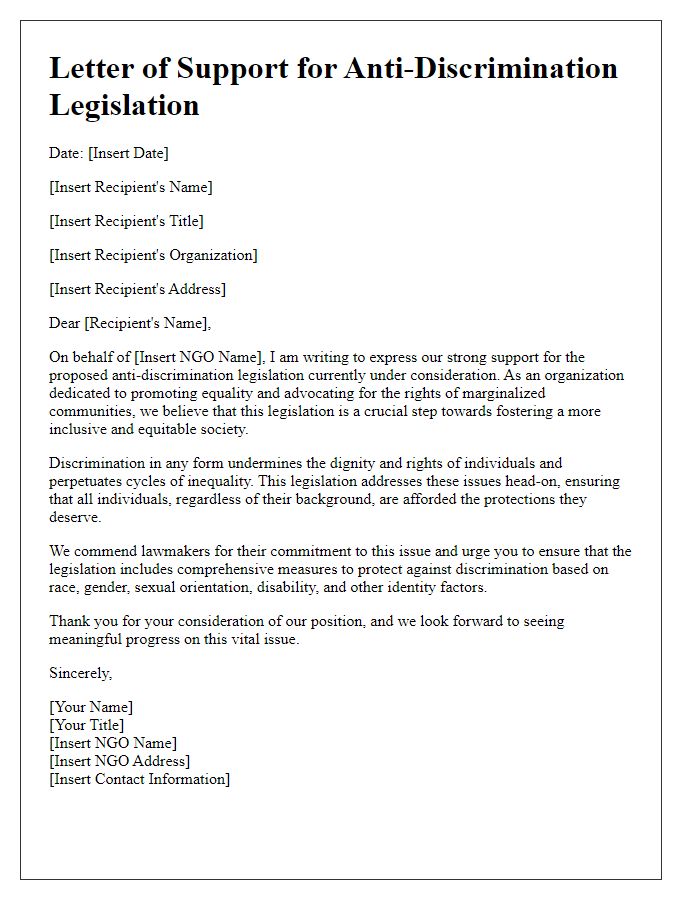
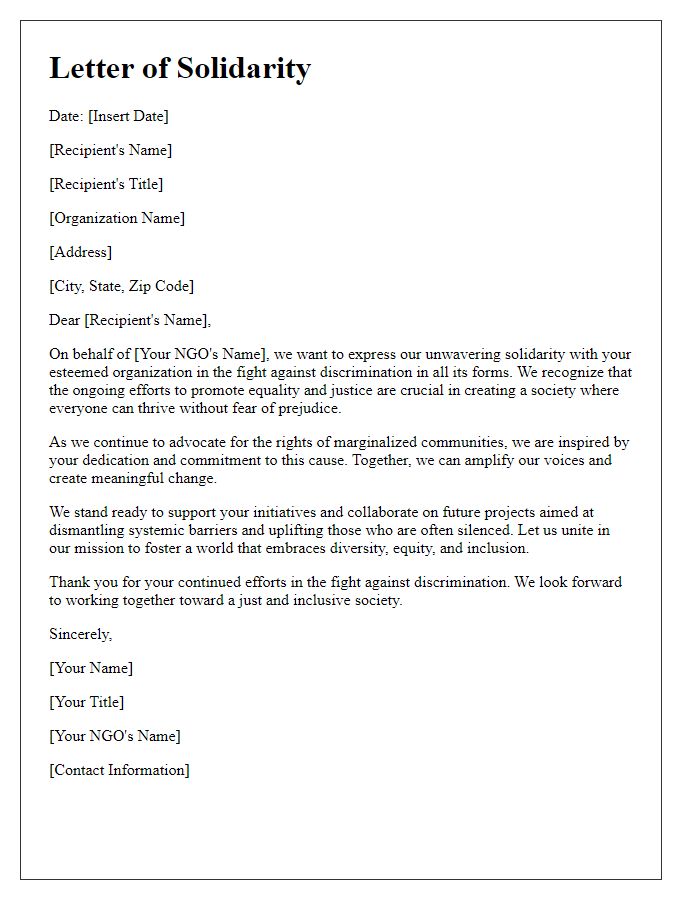
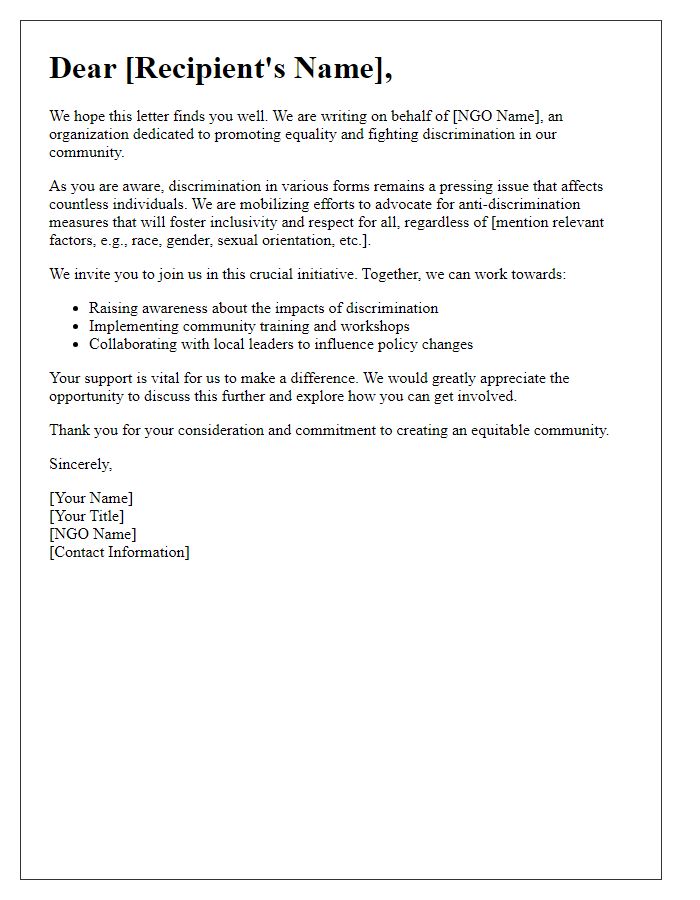
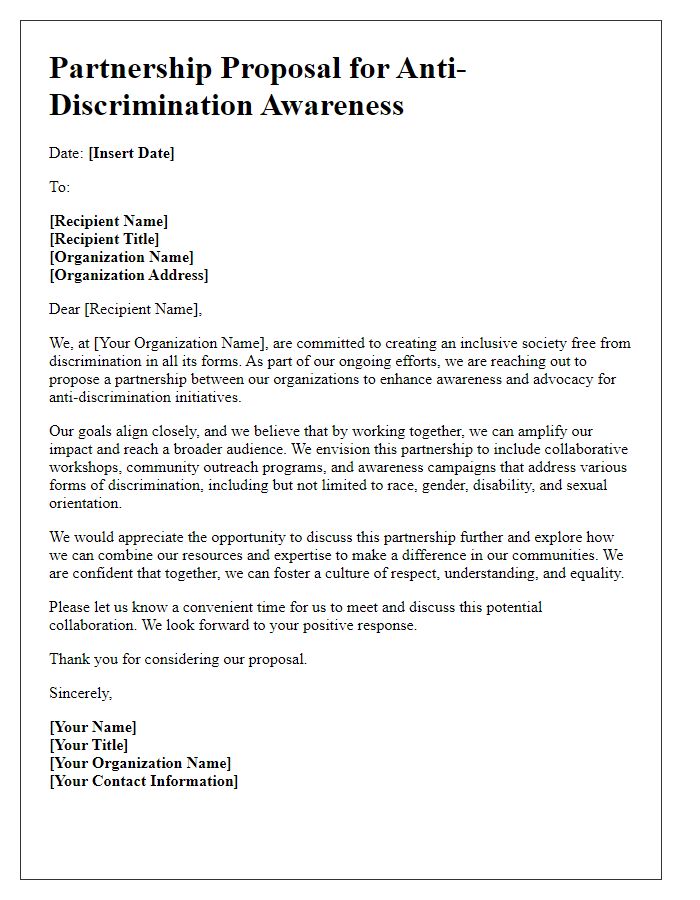
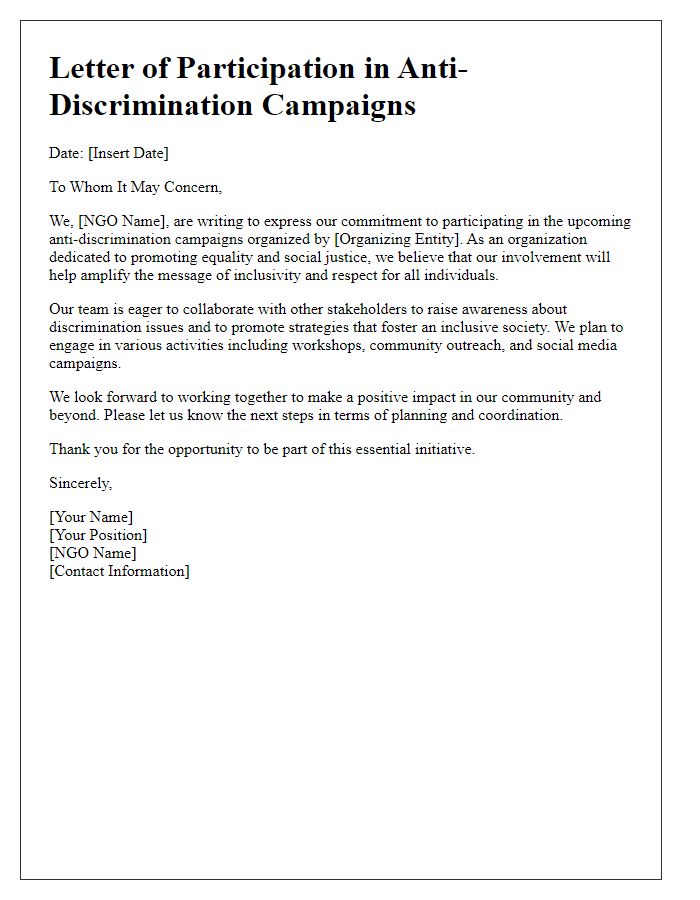
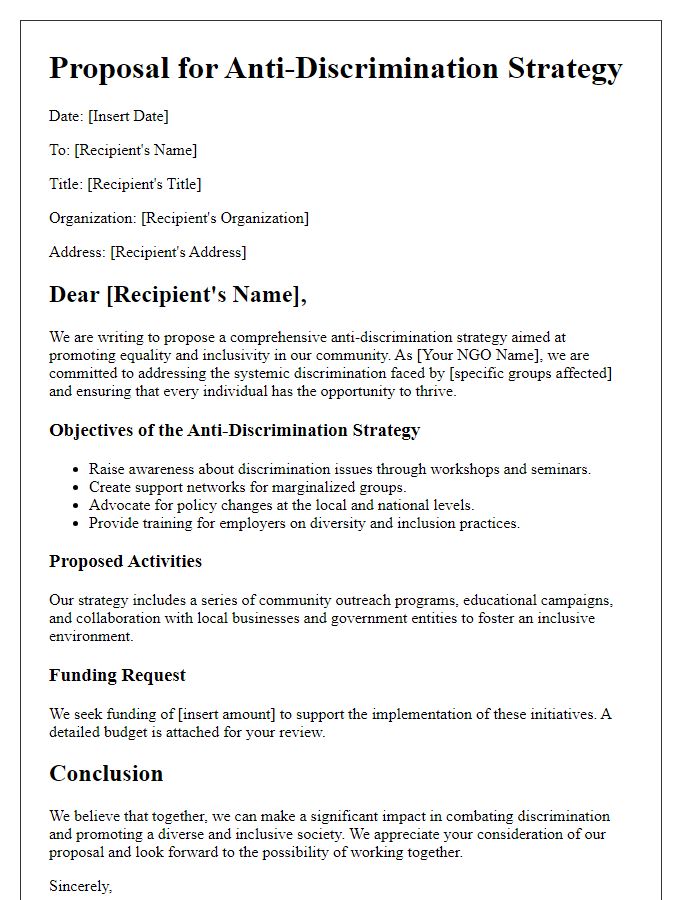


Comments